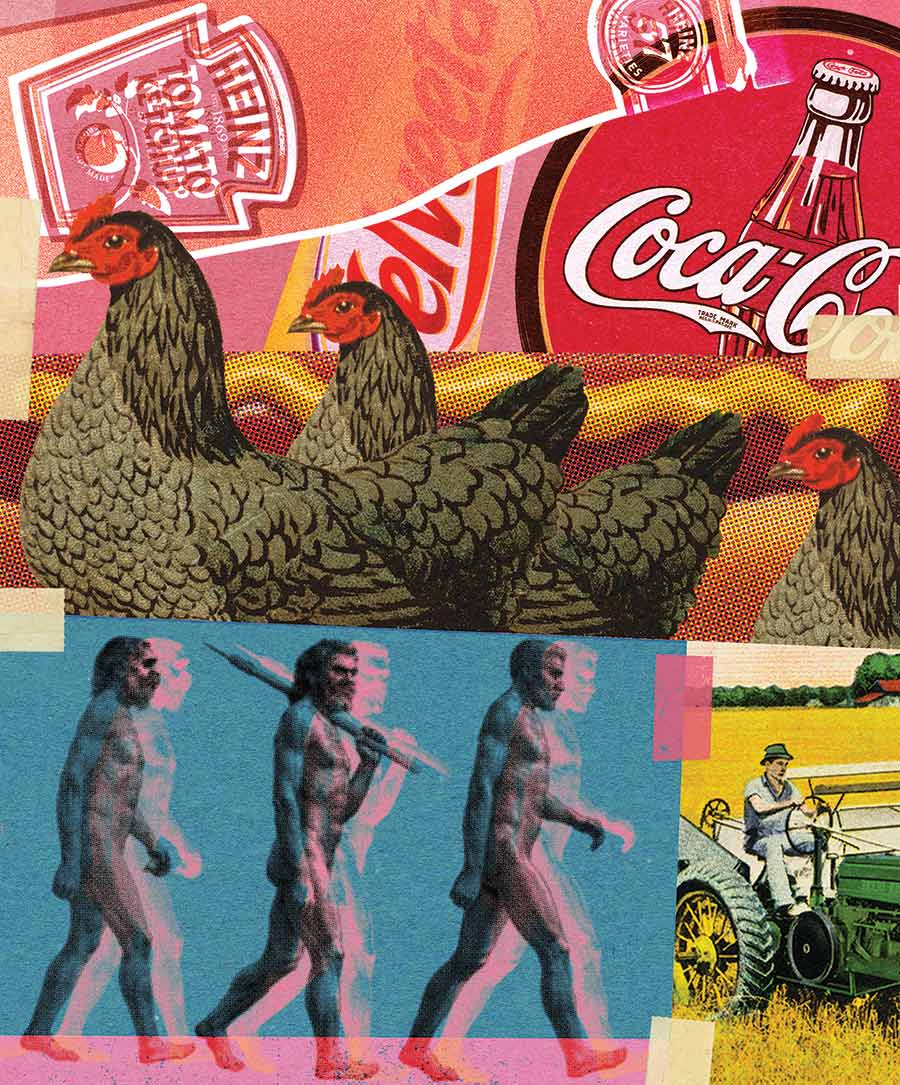Junk – Mark Bittman’s History of Why We Eat Bad Food

"The ability to produce massive quantities of a few commodities—wheat, corn, and corn syrup—has enriched not farmers but a few giant middlemen (companies like Archer-Daniels-Midland and Cargill) and implement dealers (John Deere makes four times as much money providing credit to struggling farmers as it does selling tractors). And it has created a new problem: what to do with the massive amount of calories that this commodity-focused agriculture produces. “The system,” Bittman explains, now “delivers a nearly uninterruptible stream of food, regardless of season,” and in the process it has created junk: the processed food that now dominates the Western diet and, increasingly, many other diets around the world. “Junk made it possible to encourage people to—really, [made] it difficult for them not to—eat too much non-nourishing food over a prolonged period.”
As Bittman notes, the calories have to go somewhere, and—thanks in no small part to the advertising industry, which attached itself to the food industry like a remora to a shark—they went inside us; we look the way we do because of the need for the Krafts and Heinzes of the world to keep their profit margins growing by finding new ways to get us to consume their limited line of basic commodities. “Global sugar consumption has nearly tripled in the past half-century,” he writes, and so has obesity; the number of people worldwide living with diabetes has quadrupled since 1980. “Two thirds of the world’s population,” Bittman tells us, “lives in countries where more people die from diseases linked to being overweight than ones linked to being underweight.”"
read review by Bill McGibben
Junk – Mark Bittman’s History of Why We Eat Bad Food - QotNews:


